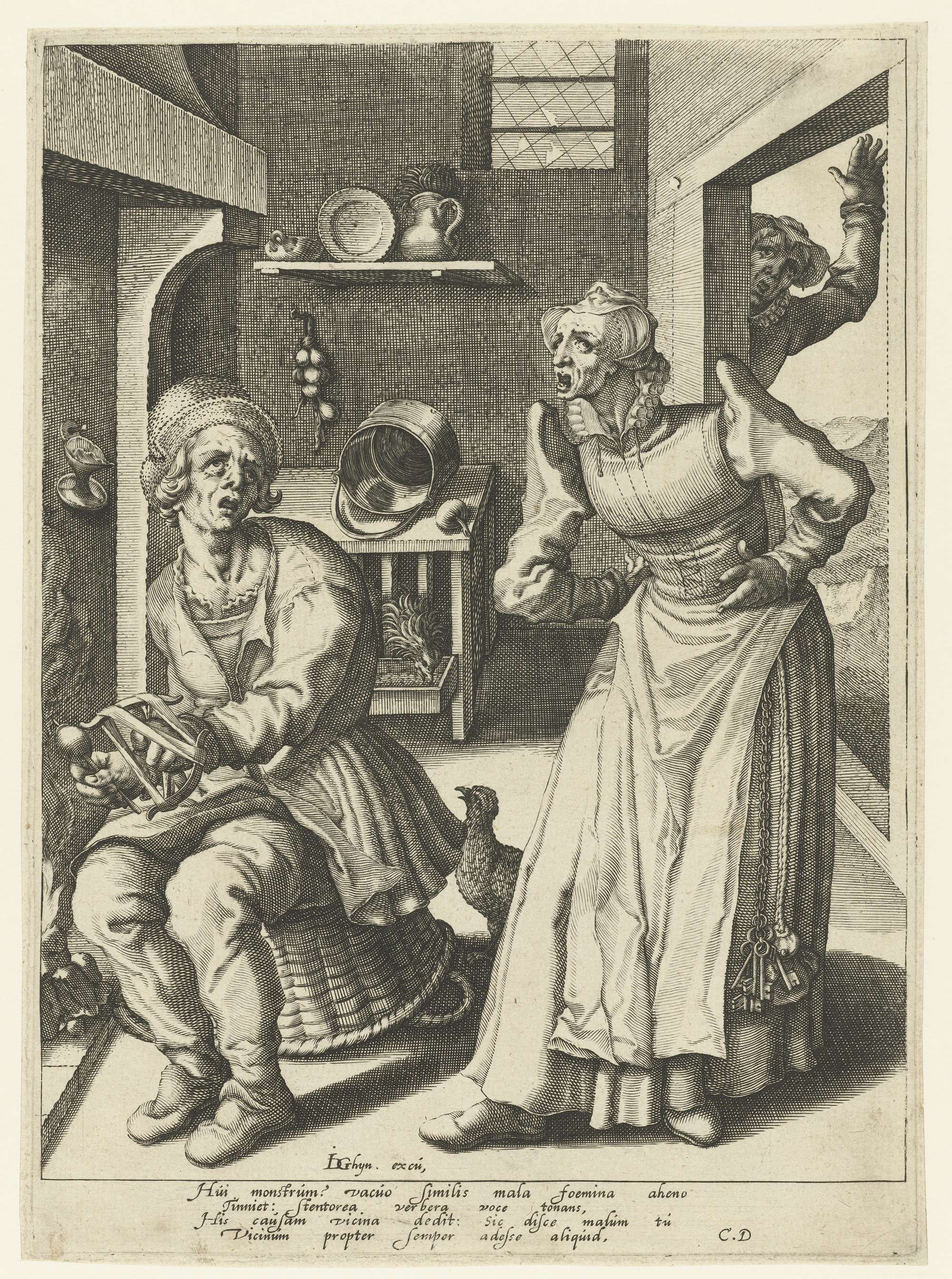The Fretful Wife
February 21, 2019

THE interesting Victorian advice book, Home Whispers to Husbands and Wives (The American Female Guardian Society, New York; 1859) by “Melva” contains some wise words on the important subject of the “fretful wife.” Victorian writing is flowery and effusive compared to modern style, but it often expresses passion and common sense. How many fretful women have given homemaking a bad image — and indirectly encouraged the feminist revolt? We will never know. Surely many. The only appropriate response to this essay for fretful women is — to fret about being fretful.
FRET, fret—scold, scold, from morning to night, in haste or leisure, when it rained or the sun shone; Mrs. More always found something to find fault about, something to dislike.
She began it when she was a child; her mother fretted and she learned the art. She practised her lessons well as she grew up. She carried the habit with her into the home of her married life, and scarcely kept it out of sight during the honey-moon. After she became a mother, she found occasion to fret every day and almost every hour of her life, till she came to be the most accomplished fretter that we knew.
She was handsome—at least she might have been, but fair and regular features will look ugly, when the scowl of peevishness mars them. She was smart, and efficient in the management of her domestic afi’airs. Her house was a model of order, and the Ways of her household were well looked after, but I have seen more comfort, where there was less system. She was intelligent and when the demon, that enthralled her, slumbered for a little, and her fine features were irradiated with the smile and glow of social cheerfulness, she would seem to be a most engaging woman. She was self-sacrificing. Her ease and preferences she would yield to the good of others, but the most precious offerings she laid on the altar of love, she would baptize with the unholy waters of fretfulness and complaint, till the valueof the benefaction was wholly lost, or greatly marred to the recipient.
She was religious, and labored to advance the kingdom of Christ on earth. Alas! there was a. kingdom of quiet peace, holy calm, and heavenly sunshine, that never came to her own soul.
She was a wife and mother. She loved her family well, she thought; she toiled for them and strove to advance them in life; but she never loved them well enough to conquer her enemy for their sakes, nor did she ever make their home‘ or their daily life, what these should be, where God has given and continues a wife and mother.
Her husband grew dwarfed in soul, soured and hard in social character. Her children—those most-to-be-pitied ones, who had the first delicate buddings of life’s spring-time nipped by such ‘ biting frosts—suffered in} their sensibilities, and exhibited such excrescences of character, and such warpings of soul as might have been expected. The sweetest fragrance—the sunniest light of home, never shed its aroma, or brightness in their daily paths. Some learned from her to fret and complain, and transmitted the same curse to other households and another generation. Some with finer sensibilities, shrank and withered under it; while in some souls the waters of bitterness and misanthropy wore deep, broad channels; for there was a numerous household to feel the blight.
She felt and knew that her family did not love her as she would have had them love her. She saw that they were glad to live out of her presence, though she was conscious that she lived and labored for them. This created a sense of injustice done her, which engendered a feeling akin to bitterness as she advanced in life—and over this she fretted still more intensely; till, dear reader, she fretted herself into the grave.
The looker on, as he summed up the results of her life-work—her woman’s work—might have written over all her opportunities for great and blessed achievements, “ Wanting”——“ Failures”——“Lost”——“ Marred.” And wherefore? Because of this enemy—a feeble one at first, but nourished and cherished through many years, grown at length her conqueror and master.
O woman! whose highest honor it is to mature and rear earth’s men and women for God’s service, and to breathe over the homes where you rear them, something of the atmosphere of that home yours should typify — exorcise, I entreat you, this foul spirit, this demon — FRETFULNESS, from your domain. Let its shadows never darken your threshold. Let its breath never blight the spirits it is your province to ward and watch.
